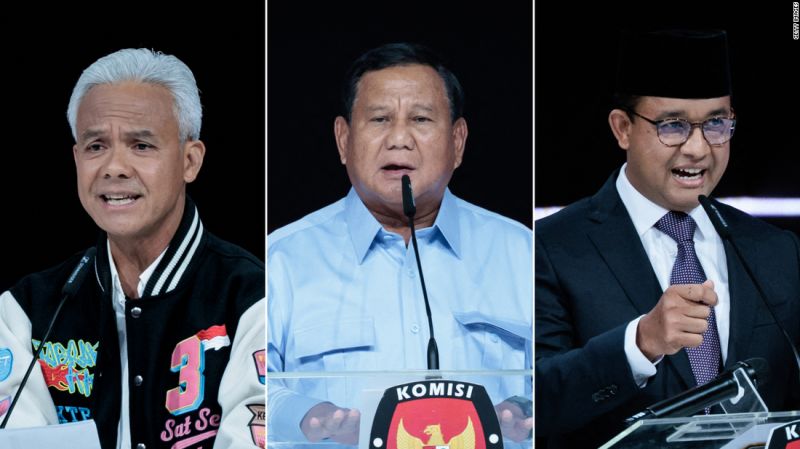
Indonesia is holding its presidential election on Wednesday, with more than 200 million eligible voters heading to the polls. The country has made impressive gains since the fall of Suharto's authoritarian regime in 1998 and is now one of Asia's most vibrant democracies and economies. Outgoing President Joko Widodo, popularly known as Jokowi, has dominated Indonesian politics since 2014 but is constitutionally barred from seeking a consecutive third term. The three main candidates are Prabowo Subianto, Ganjar Pranowo and Anies Baswedan.


